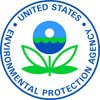EPA Announces Over $3.8M in Region 7 for Tribal Recycling Infrastructure Projects and Recycling Education and Outreach Grants as Part of America Recycles Day
On America Recycles Day and the anniversary of President Biden’s Bipartisan Infrastructure Law, EPA announces grants funded in part by the largest recycling investment in 30 years

LENEXA, KAN. (NOV. 15, 2023) – Today, in conjunction with America Recycles Day, the U.S. Environmental Protection Agency (EPA) announced the selection of the Prairie Band Potawatomi Nation to receive over $400,000 in Solid Waste Infrastructure for Recycling (SWIFR) Grants for Tribes and Intertribal Consortia, and two selectees to receive nearly $3.5 million in Recycling Education and Outreach (REO) Grants. These grants, which are part of President Biden’s Investing in America Agenda, will expand recycling infrastructure and education for waste management systems across the region.
“Supporting the circular economy through recycling is one of the most important steps we can take to reduce the amount of waste sent to landfills in our region,” said EPA Region 7 Administrator Meg McCollister. “These grants ensure that our cities and tribes have the resources they need to make a positive impact on our environment for generations to come.”
These recycling grants will help tackle consumer confusion and outdated recycling infrastructure, the largest barriers to proper recycling. Thanks to President Biden’s historic Bipartisan Infrastructure Law, which was signed two years ago today, EPA was provided the largest recycling investment in 30 years that is the funding these two new programs.
These grants reflect the Biden-Harris administration’s commitment to tackling environmental justice and the climate crisis. Many communities with environmental justice concerns carry a disproportionate environmental and human health burden from waste management. As part of President Biden’s Justice40 Initiative, 100% of the funding allocated in EPA’s SWIFR Grants for Tribes and Intertribal Consortia and 74% of the funding allocated in the REO Grants will benefit underserved and overburdened communities. Increasing recycling is also an important way to reduce pollution, because natural resource extraction and processing make up half of all global greenhouse gas emissions that drive the climate crisis. Recycling reduces the need to extract resources such as timber, water, and minerals for new products.
Solid Waste Infrastructure for Recycling Grants for Tribes and Intertribal Consortia
The SWIFR Grants for Tribes and Intertribal Consortia will enable tribes to make improvements to their recycling and waste management systems, meeting Congress’ goal to create a stronger, more resilient, and cost-effective U.S. municipal solid waste recycling system. EPA Region 7 has announced the selection of the Prairie Band Potawatomi Nation in Mayetta, Kansas, to receive $414,736 through the program. The Tribe will use this funding to address operational challenges associated with aging solid waste and recycling infrastructure through equipment replacements. This objective will be achieved through the purchase of recycling infrastructure upgrades, such as a baler, recycling containers, a truck, a trailer, and metal-reinforced gates for material containment bins.
To learn more about the Solid Waste Infrastructure for Recycling for Tribes and Intertribal Consortia funding, please visit EPA’s Recycling Grants Selectees and Recipients page.
Recycling Education and Outreach Grants
The Recycling Education and Outreach Grant projects will help inform the public about local recycling and composting programs, and focus on increasing collection rates and decreasing contamination of recycling streams across the nation. EPA has announced two selectees to receive a combined $3,467,800 in REO Grants:
- The City of Joplin, Missouri, has been selected to receive $1,740,000. The city will use these funds to support a three-year campaign focused on further expanding recycling awareness and encouraging behavioral changes through educational programs.
- The City of Lincoln, Nebraska, has been selected to receive $1,727,800. The city will use these funds to form three focus groups to engage minorities, new Americans, and low-income individuals living in Lincoln’s 14 disadvantaged census tracts, which includes college students at the University of Nebraska-Lincoln, using evidence-based messaging to address barriers to recycling and food waste diversion and develop messages and outreach materials in a variety of methods and languages.
To learn more about the Recycling Education and Outreach funding, please visit EPA’s Recycling Grants Selectees and Recipients page.
America Recycles Day
Today marks the 29th annual America Recycles Day, which is also the second anniversary of both the Bipartisan Infrastructure Law and EPA’s National Recycling Strategy. The strategy was the first in a series of EPA strategies devoted to building a circular economy – one that reduces material use; redesigns materials, products, and services to be less resource-intensive; and recaptures “waste” as a resource to manufacture new materials and products.
To build upon the goals of the recycling strategy, EPA released the Draft National Strategy to Prevent Plastic Pollution for public comment in April 2023, which outlines steps to reduce pollution during production, improve management of plastic materials throughout product lifecycles, and encourage actions to keep plastics out of national waterways and the environment. Future strategies will address food waste and electronics. EPA also recently announced over $105 million for the selectees of the historic SWIFR grants for states and communities. These improvements will support a circular economy and help lower greenhouse gas emissions, as more efficient waste management systems are key to reducing energy consumption and the need for raw materials, while rebuilding our nation’s infrastructure, powered by well-paying jobs that don’t require four-year degrees.
Visit EPA’s website to learn more ways to reduce, reuse, and recycle. EPA offers many free online resources, including:
- Model Recycling Program Toolkit
- Composting Food Scraps in Your Community: A Social Marketing Toolkit
- Wasted Food Scale: Updated Recommendations
- Standardized Terms for Materials Accepted by Municipal Recycling Programs
- Creating Messages that Drive Behavior Change
- Recycling Infrastructure and Market Opportunities Map
Learn more about America Recycles Day.
# # #
Learn more about EPA Region 7
View all Region 7 news releases
Connect with EPA Region 7 on Facebook
Follow us on Twitter: @EPARegion7
